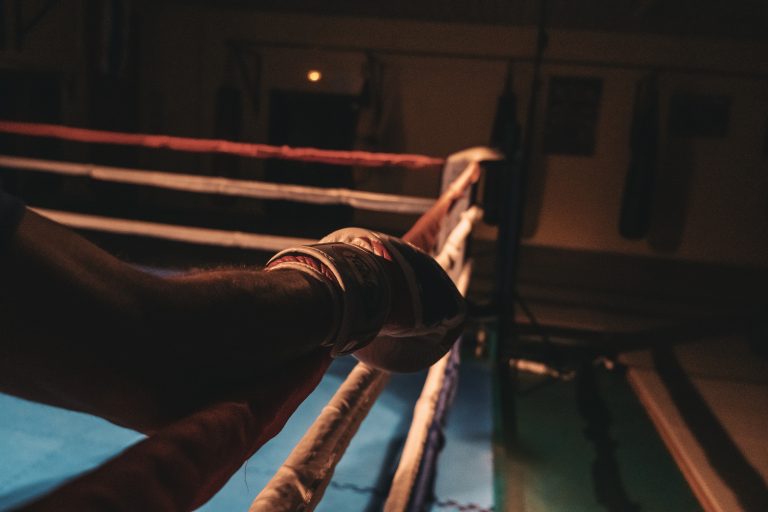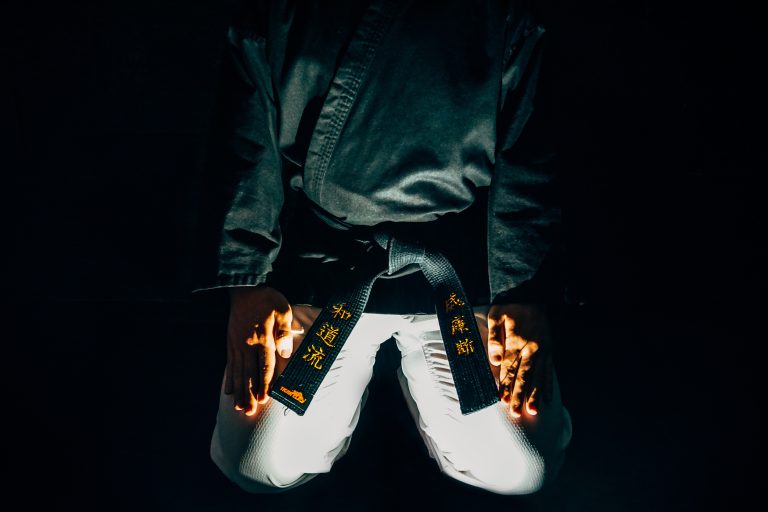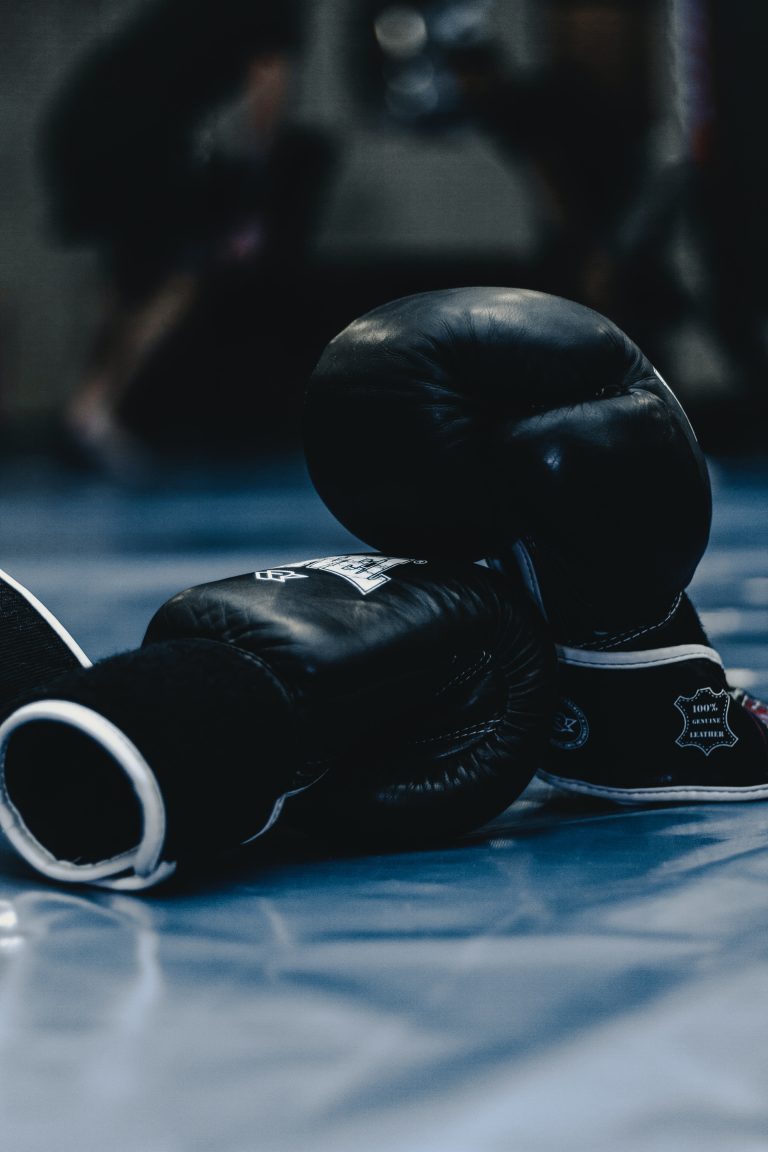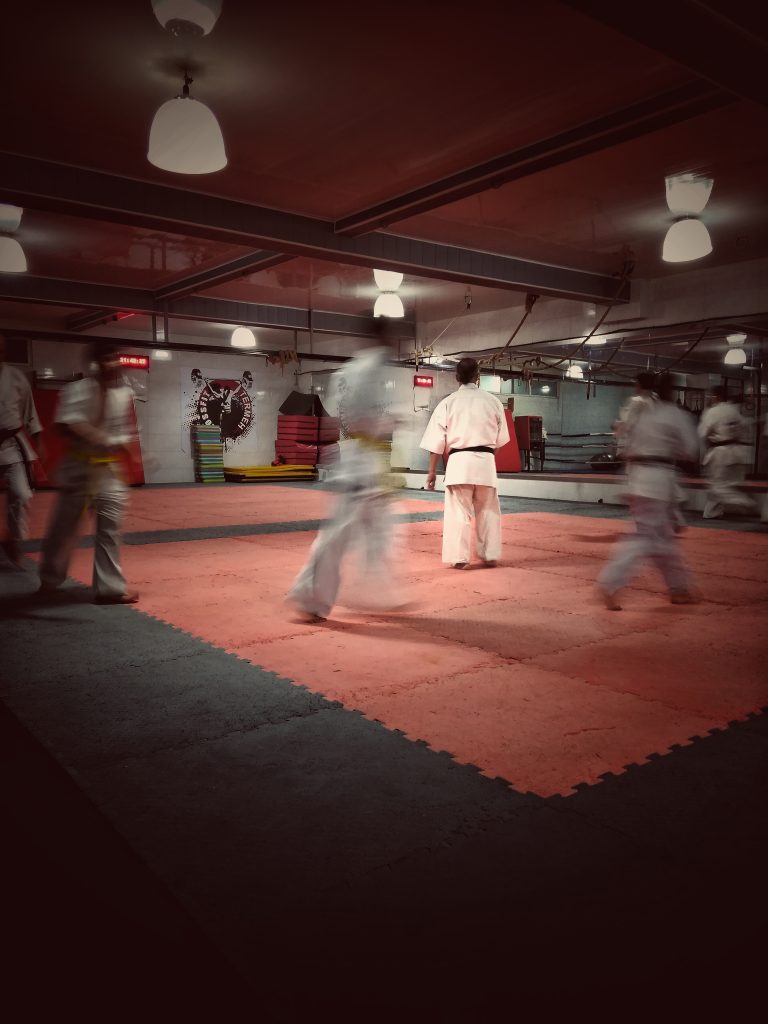Martial Arts vs. Karate vs. Kung Fu
In diesem Artikel vergleichen wir drei der beliebtesten Kampfkünste: Martial Arts, Karate und Kung Fu und beleuchten die Unterschiede und Gemeinsamkeiten.
Was sind Martial Arts?
Martial Arts ist ein Begriff, der sich auf alle Formen von Kampfkünsten und Selbstverteidigungstechniken bezieht. Das Ziel von Martial Arts ist es, das körperliche und geistige Wohlbefinden zu fördern, sowie den Körper für den Kampf zu trainieren.
Was ist Karate?
Karate ist eine japanische Kampfkunst, in der es darum geht, den Körper auf bestimmte Weise zu trainieren, um Kraft, Balance und Geschwindigkeit zu erlangen. Die Techniken von Karate umfassen Schläge, Tritte und Blockaden. Es gibt auch eine Wettkampfkategorie für Karate, in der die Techniken der Teilnehmer bewertet werden.
Was ist Kung Fu?
Kung Fu ist eine chinesische Kampfkunst, die im Westen oft mit Filmhelden wie Bruce Lee oder Jackie Chan in Verbindung gebracht wird. Kung Fu beinhaltet eine Vielzahl von Techniken, die darauf abzielen, die Stärke und Geschwindigkeit des Körpers zu erhöhen. Es gibt auch viele verschiedene Arten von Kung Fu, wie z.B. Wing Chun, Tai Chi und Wushu.
Die Unterschiede zwischen den Kampfkünsten
Obwohl alle drei Kampfkünste ein Ziel der körperlichen und geistigen Entwicklung haben, gibt es einige Unterschiede zwischen ihnen:
- Karate ist eine japanische Kampfkunst, während Kung Fu eine chinesische Kampfkunst ist.
- Karate konzentriert sich hauptsächlich auf Schläge und Tritte, während Kung Fu viele verschiedene Techniken beinhaltet, wie z.B. Tritte, Schläge, Würfe und sogar Yoga-Übungen.
- Martial Arts ist ein Dachbegriff für alle Kampfkünste, die es gibt. Während Karate und Kung Fu spezifische Kampfkünste sind, bezieht sich Martial Arts auf alle möglichen Techniken und Künste, einschließlich Schießen, Messerkampf und mehr.
Es ist wichtig zu beachten, dass jede dieser Kampfkünste aus verschiedenen Gründen trainiert wird. Einige Menschen trainieren, um selbst in der Lage zu sein, sich zu verteidigen, während andere das körperliche Training schätzen.
Fazit
Wenn man auf der Suche nach einer Kampfkunst ist, die einen anspricht, ist es wichtig, alle Optionen abzuwägen und zu entscheiden, welche der verschiedenen Techniken am besten zu einem passt. Jede der drei Künste kann dazu beitragen, das körperliche und geistige Wohlbefinden zu verbessern und ein besseres Verständnis für den Körper und den Geist zu entwickeln.
Martial Arts vs. Karate vs. Kung Fu: FAQs
When we talk about martial arts, Karate and Kung Fu are two names that come to mind. While these two terms are commonly used interchangeably, they’re not the same thing. In this blog post, we’ll explore the differences between martial arts, Karate, and Kung Fu.
Q1: What Is Martial Arts?
Martial arts is a term used to define a range of combat and self-defense practices originating from different parts of the world. It’s a form of physical and mental training that involves various techniques of attacking or defending oneself. The term „martial arts“ usually refers to East Asian practices such as Karate, Kung Fu, Taekwondo, and Judo. It’s essential to note that there are various forms of martial arts worldwide, such as Muay Thai from Thailand, Krav Maga from Israel, and Brazilian Jiu-Jitsu from Brazil.
Q2: What Is Karate?
Karate is one of the famous forms of martial arts that originated in Okinawa, Japan. It’s a striking art that emphasizes punching, kicking, knee strikes, and elbow strikes. In Karate, practitioners learn to use their entire body to generate power and deliver decisive blows. Additionally, Karate practitioners also learn grappling and throwing techniques. Karate also emphasizes discipline, respect, and spiritual development as part of its training.
Q3: What Is Kung Fu?
Kung Fu is a term used to describe a range of traditional Chinese martial arts. It’s an umbrella term used to describe various practices, including Wing Chun, Tai Chi, Shaolin Kung Fu, and Wushu. Kung Fu emphasizes strikes, kicks, throws, and joint locks. Additionally, Kung Fu also includes internal training, meditation, and breathing techniques as a means of promoting good health and physical well-being.
Q4: What Are the Differences Between Karate and Kung Fu?
Karate and Kung Fu differ in several ways. Here’s a breakdown of some of the main differences:
- Origin: Karate originated in Japan, while Kung Fu originated in China.
- Techniques: Karate emphasizes strikes, kicks, and throws, while Kung Fu emphasizes strikes, kicks, throws, and joint locks.
- Training: Karate training is more linear, with an emphasis on perfecting techniques through repetition, while Kung Fu training is more flowing and circular, with an emphasis on using techniques in combination with one another.
- Style: Karate is usually a very aggressive and straightforward style of fighting, while Kung Fu is more intricate and versatile in its movements.
Q5: Which Is Better, Karate or Kung Fu?
There’s no clear answer to this question. Both Karate and Kung Fu have their strengths and weaknesses. The best martial art for you depends on your goals and preferences. For example, if you’re looking for a more aggressive and straightforward style, Karate may be a better fit. In contrast, if you’re searching for a more flowing and versatile style, Kung Fu may be a better fit.
Q6: Are Martial Arts Useful For Self-defense?
Yes, martial arts can be useful for self-defense. However, it’s essential to note that not all martial arts styles are created equal in terms of effectiveness in a real-life self-defense situation. The best martial art for self-defense is the one that emphasizes practical techniques that can be used in real-life scenarios. Additionally, training in martial arts also teaches practitioners situational awareness, which can help them avoid conflict altogether.
Q7: Can Anyone Learn Martial Arts?
Yes, anyone can learn martial arts. Martial arts is not restricted by age, gender, or physical ability. Many martial arts schools specialize in teaching beginners and tailoring their training to their specific needs and abilities.
Q8: What Are The Physical Benefits Of Martial Arts Training?
Martial arts training has several physical benefits, including:
- Improved overall fitness and aerobic conditioning
- Increased flexibility, balance, and coordination
- Improved strength and cardiovascular health
- Reduced stress and anxiety levels
Q9: What Are The Mental Benefits Of Martial Arts Training?
Martial arts training also has several mental benefits, including:
- Improved focus, concentration, and self-discipline
- Increased self-confidence and self-esteem
- Enhanced problem-solving and decision-making skills
- Reduced stress and anxiety levels
Q10: How Can I Get Started With Martial Arts Training?
To get started with martial arts training, you can find a reputable martial arts school in your area or look for online classes. When choosing a martial arts school or class, make sure to do your research, read reviews, and talk to instructors and other students to ensure they’re a good fit for you. Additionally, make sure to invest in the proper equipment if needed, such as gloves, pads, or uniforms, and always ensure that you’re practicing in a safe and controlled environment.
Conclusion
In conclusion, martial arts, Karate, and Kung Fu are three different things with their unique strengths and weaknesses. While Karate is straightforward and aggressive, Kung Fu is more versatile and flowing, and martial arts as a whole offer several physical and mental benefits. No matter which martial art you choose, always ensure you’re practicing with the proper technique and in a safe environment.
Inhaltsverzeichnis





